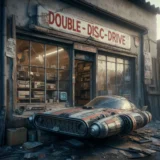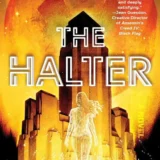Every writer will tell you that in order to write, you need to read. If you want to be a good writer, you need to read ALOT. That much universally acknowledged. What isn’t agreed on, though, is what an aspiring writer should read. Should an aspiring science fiction writer read science fiction novels and stories or steer clear away from them? If yes, then are classics or modern work more important than the other? If not, what should he or she be reading instead? That is what I will try to get to the bottom of in this essay.
Speaking personally, I want to grow into a science fiction writer. My personal reading habits, therefore, are geared more to that field than any other. I try to split the stories evenly between classic and well-established writers like Asimov, Bradbury, and the like with whoever is appearing in the latest Analog and F&SF. I do try to salt and pepper the SF with other reading, mostly mysteries and nonfiction. I am also currently on the tenth night of a one-thousand night Ray Bradbury-inspired reading program where I read one short story, one poem, and one essay a day of whatever I choose. I have been trying to add more literary fiction to this reading list to broaden the horizon. To simplify it, I guess I care to my own tastes on any given day.
Other people have their own ideas. Mr. Bradbury professed many times his idea that a writer should read anything and everything he can get his hands on, wanting their “loves to be multiple.” In an email enquiry, John Scalzi told me that his opinion wasn’t to read whatever you want to read. This seems to be the general consensus from those who have “made it.”
Other sources, however, have different opinions. I have read multiple times that someone should heavily study the current market of whatever genre they wish to focus on to see what’s being done. Strongly wise, but I wonder if this is not too inclusive? Bradbury expressed his disdain for modern short stories and poetry, calling them “slices of life” and “crap,” respectively. Indeed, I myself have read a few pieces in some newer issues of the various genre magazines I subscribe to that even as an amateur I’m like, “this shit actually got published?” Stories that have withstood the tests of time are unlikely to be denounced in the same manner, so ignoring the classics altogether is definitely not a good idea. It may not be what readers want to read today, or what the editors are buying, but it worked then. Literature tends to build on what came before, so trying to write what is popular now without going back and reading what came before is kind of like trying to replicate a famous building without studying the blueprints first. The result could be a crude copy on the outside, lacking the necessary foundation to really make it a good work in and of itself. Respect the classics.
Many people have also encouraged genre writers to read only in fields outside of their own; science fiction would be off-limits to my devoted soul if I were to follow this advice. I can see their reasoning. Shutting your mind off from the genre and focusing on another helps open the eyes and spirit to writing as writing instead of a categorized endeavor. Unfortunately, the same roadblocks I stated before still apply. How is the writer to know what is going on in their own field if they shy away from it! You can gain some valuable insight by reading things other than science fiction but if that’s the genre you wish to write in, you have to include it into your reading somehow.
Remember Bradbury’s words, “I want your lives to be multiple!” You can’t get much better than Ray Bradbury. He wrote just about every conceivable genre and medium that is possible writing-wise, and he himself was always quick to point out how much of a voracious reader he was. It is next to impossible for the majority of us to reach his heights in the literature field, but if we wish to stand a chance then we need to read whatever’s we can get our hands on.








